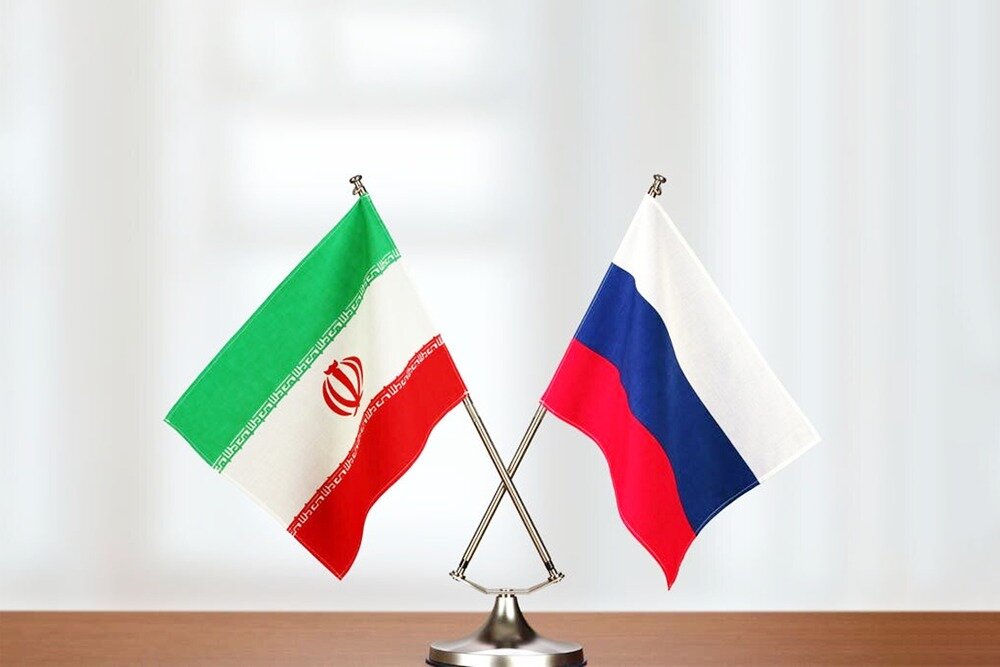Iran, Russia working on strategic deal
Foreign Ministry spokesman tells Tehran Times: Iran and Russia have placed long-term cooperation on agenda

TEHRAN – Iran and Russian authorities have begun working on drafting a new long-term cooperation document that would replace a decades-long treaty between the two countries, the Tehran Times can reveal.
Tehran and Moscow already have a treaty that is set to expire nearly a year from now. The treaty in question was signed in Moscow between Iran and Russia on March 12, 2001. The treaty, officially known as the Treaty of the Foundation of Mutual Relations and the Principles of Cooperation between the Islamic Republic of Iran and the Russian Federation Act, was initially signed for a period of 10 years. But it was extended twice.
According to the terms of the treaty, if neither party notifies the other party in black and white of its intention to terminate the treaty at least one year before its expiration, it will be automatically extended for a further period of five years. Accordingly, the treaty has so far been extended twice.
With the treaty nearing its expiration date, Iran and Russia have begun discussing ways to update it and draft new documents to boost Tehran-Moscow relations, according to Iran’s Foreign Ministry spokesman Saeed Khatibzadeh.
The spokesman said that the treaty is valid until March 2022.
“Given the developments in relations between the two countries in recent years, officials of the two countries emphasize the need to update existing documents and draft new documents to develop cooperation,” the Spokesman told the Tehran Times. “To this end, the drafting of a comprehensive document on long-term cooperation has been placed on the agenda of the two countries.”
Khatibzadeh said that such a document requires measures and brainstorming inside Iran and Russia in the first place.
“This [document] initially requires measures within the two countries to prepare a draft document with the brainstorming and conclusion of the views of the relevant ministries and organizations. And then the two countries should negotiate to finalize it after exchanging views,” Khatibzadeh said.
Iranian Foreign Minister Mohammad Javad Zarif underlined the need to upgrade the Treaty and raise the Iran-Russia cooperation to a strategic level.
On July 21, Zarif paid a visit to Moscow to hold talks over a range of issues including the need to extend the Treaty. The Iranian foreign minister said at the time that this Treaty was no longer compatible with the current status of relations between Russia and Iran and that it needs to be extended and upgraded.
“This Treaty belongs to another period of international relations and our relations with Russia. We have agreed with Putin to review the treaty,” Zarif said at the end of his July visit to Moscow, adding that he held talks with the Russian officials for more than 4 hours, including an hour-long phone conversation with Russian President Vladimir Putin, which Zarif himself described as “very fruitful.”
The chief Iranian diplomat added, “Of course, when the expiration date arrives, the treaty will be extended provided that no party opposes the extension. However, we think it’s better to upgrade the treaty and draft a long-term comprehensive strategic agreement, which should be signed eventually and then submitted to the Parliament.”
Zarif once again reiterated the need to upgrade the treaty in early August when Leonid Slutsky, chairman of the International Affairs Committee of Russia’s State Duma, paid a visit to Tehran.
During a meeting with Slutsky, Zarif described Tehran-Moscow ties as strategic and said that Iran and Russia should update the long-term cooperation treaty to a strategic level.
Following Zarif’s visit to Moscow in July, Kazem Jalali, Iran’s ambassador to Russia, stated that Iran and Russia are determined to reach a deal for long-term comprehensive cooperation.
“The two countries’ top officials have announced their agreement to extend and update the deal. Given the prospect of cooperation, they are determined to sign a long-term deal for comprehensive cooperation,” the ambassador said in a tweet.
